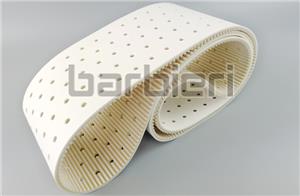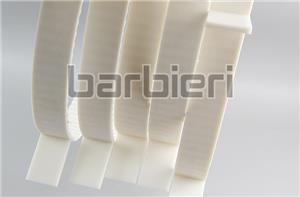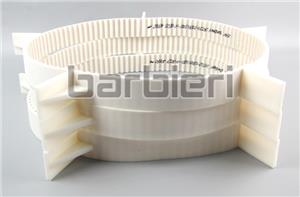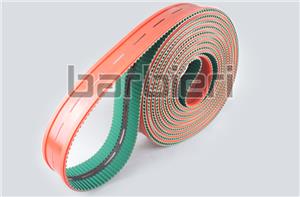How long is the service life of the timing belt? How long is the warranty period of the polyurethane timing belt?
The theoretical fatigue life of the timing belt is about 8,000 working hours. When the polyurethane timing belt transmission system is properly assembled, the use environment is suitable, and there is no external damage or other factors, the normal aging life of the polyurethane timing belt used is 2-3 years., but the actual life span depends on the rationality of the design and the actual working conditions.
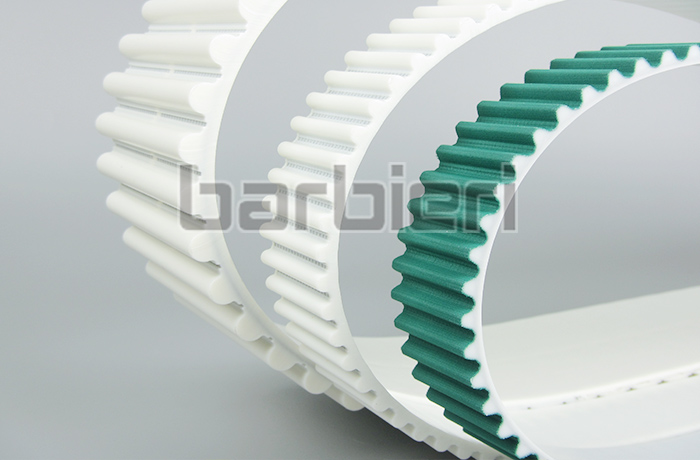
The same timing belt is used in different mechanical equipment.,The rotation speed and pulling force of the mechanical equipment are different, which will have great differences in the wear of the timing belt, so the service life of the timing belt will also be different; the same timing belt, different environments If it is used under conditions such as exposure to corrosive solvents, long-term overload work, use at too low or too high temperatures, the service life of the timing belt will be greatly reduced, so the service life of the timing belt is also different.
The service life of the timing belt varies due to many factors, such as workload, working environment, driving method, etc. It is also related to the age of the mechanical equipment, frequency of use, operator operation, etc. The reason why manufacturers generally can only Given a shelf life of 3 months.
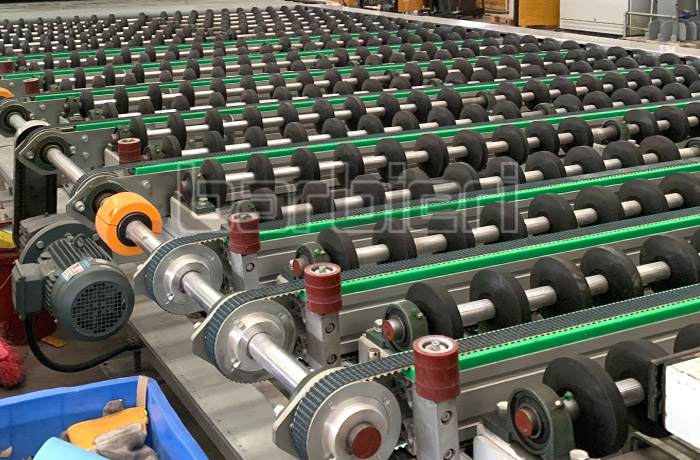
The life of the timing belt depends on the comprehensive influence of many factors, In order to ensure that the timing belt can work stably for a long time, comprehensive consideration and optimization should be carried out from the aspects of design, selection, use and maintenance.
The following aspects should be noted:
1. Select high-quality timing pulley materials and processing technology to ensure the accuracy and stability of the timing pulley;
2. Select the appropriate timing belt type and specifications according to the actual workload;
3. Keep the transmission system clean and dry to avoid the influence of dust, dirt and other impurities;
4. Regularly check the wear of the timing belt and replace the damaged timing belt in time;
5. Control the working temperature of the timing pulley to avoid the impact of overheating on the life of the timing belt.
- Polyurethane Timing Belt
- Annular Timing Belt
- Open-end Timing Belts
- AT-series Timing Belts
- T-series Timing Belts
- STD-series Timing Belts
- HTD-series Timing Belts
- RPP-series Timing Belts
- TT5-series Timing Belts
- Imperial Series Timing Belt
- Supported Polyurethane Flat Belt Series
- Double Sided Timing Belt
- ATN-series Timing Belts
- Timing Belt With Backing
- Timing Belt With Fabric
- Timing Belt Punching
- Polyurethane Self-tracking Timing Belt
- Polyurethane Belt With Profile
- Special Processing Timing Belt

